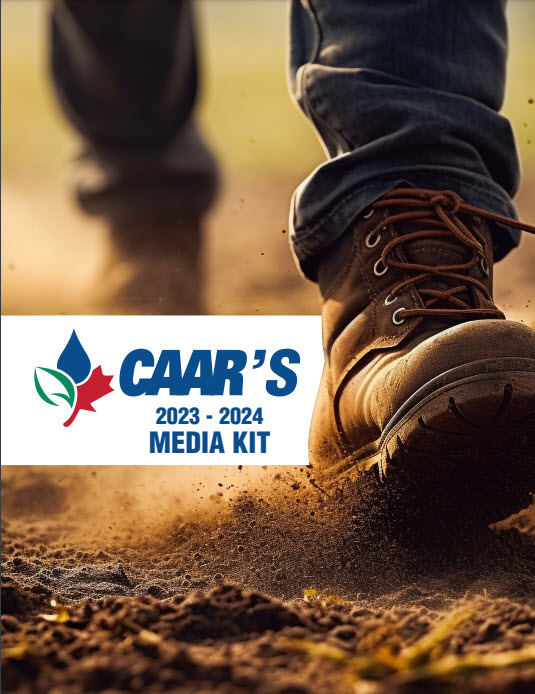Editor’s note: For the most up to date information on CAAR’s Equivalency and Temporary Certificates regarding the B620/622 changes please refer to Member Alert: Update on CAAR’s Equivalency Certificate and Temporary Certificate
The following information is based on legal advice provided to Fertilizer Canada by its legal counsel. Canadian Association of Agri-Retailers (CAAR) and Fertilizer Canada have been working closely together on this issue. This information is being shared to CAAR members with Fertilizer Canada’s permission.
There has been a significant amount of discussion about the circumstances in which the Equivalency Certificate (EqC) and/or Temporary Certificate (TC) may apply to farmer-owned tanks. CAAR has engaged Transport Canada directly on developing an option for the use of farmer-owned tanks, which is reflected in the EqC and/or TC, but cautions that the option developed is not a blanket license for farmers to use their own tanks.
The EqC (SH 11690) and TC (TH 0653) applies solely to:
- The members of CAAR
- Any person using a CAAR member-owned or member-leased tank, or
- Any person on behalf of the members of CAAR
The first class is clear, meaning members of CAAR.
The second class refers to any person using a CAAR member-owned or member-leased tank. The two constituent parts of this second class are:
a) A person using a CAAR member-owned tank refers to a person, including a farmer, who uses a CAAR member-owned tank, whether pursuant to a lease agreement or otherwise. In the case of a farmer, this includes use of a tank owned by a CAAR member and made available to the farmer.
b) A person using a CAAR-member-leased tank refers to a person, including a farmer, who leases a tank to a CAAR member, who in turn, makes the tank available to the farmer. This is the option envisaged by Transport Canada for farmer-owned tanks.
The third class refers to a “person on behalf of the members of CAAR.” This refers to persons who have a contract with one or more CAAR members, to handle, offer for transport or transport ammonia on behalf of one or more CAAR members, as the case may be. For example, it would include a transportation services company hired by a CAAR member to handle or transport ammonia product on behalf of the CAAR member.
In all instances contemplated by this EqC and TC, Transport Canada has clarified that it is the responsibility of the member to ensure that any tank pursuant to the EqC and/or TC meet the requirements of the EqC at all times.
It has been suggested that the third class of persons handling, offering to transport or transporting ammonia in a means of containment “on behalf of a member of CAAR” includes to farmer customer of CAAR who wishes to use his or her own tank. Based on discussions with Transport Canada, this is not the intent and therefore, CAAR wishes to clarify that any such use is at the CAAR member’s and farmer’s own risk. To be clear, as noted above, in the case of farmer-owned tanks, unless the tank in question has been leased to a CAAR member by the farmer, i.e., the use falls into the second class discussed above, the EqC may not be invoked.
For spring seeding 2018 farmer owned tanks have the following options:
- Coordinate anhydrous ammonia hydro pressure testing of nurse tanks prior to commencement of seeding to be in compliance or;
- Retailer lease of farmer owned nurse tank, who in turn, makes the tank available to the farmer.
- Apply for TC and EqC from Transport Canada as an individual farmer
CAAR recommends agri-retailers consult with appropriate legal contract counsel to develop farmer-owned tank lease agreements.
Should you have any questions or concerns, please do not hesitate to contact CAAR at the coordinates below.
Mitch Rezansoff
Executive Director
E: This email address is being protected from spambots. You need JavaScript enabled to view it. | P: 204-989-9303
 How to resolve AdBlock issue?
How to resolve AdBlock issue? 


Join the discussion...
You must be logged in as a CAAR member to comment.
Report
My comments